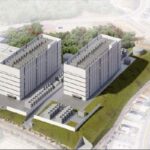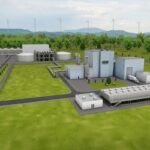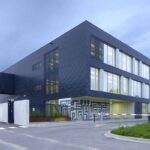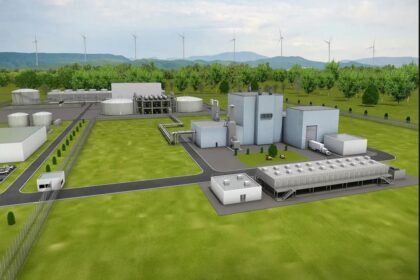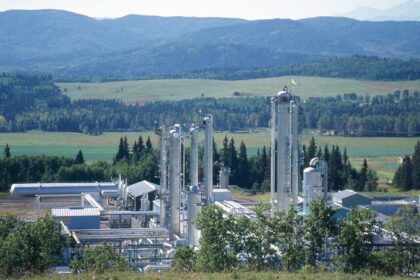Deep Fission, a developer of small modular nuclear reactors (SMRs), has partnered with Endeavour Energy to deploy 2GW of nuclear energy for Endeavour’s global data center portfolio. This collaboration marks a significant step towards sustainable, zero-carbon power for the data center industry, with the first reactors expected to be operational by 2029.
Key Details of the Agreement
The partnership aims to co-develop 2GW of nuclear energy using Deep Fission’s advanced SMR technology. Endeavour’s data center division, Edged, will be the primary beneficiary of this clean energy initiative.
“Our technology ensures the highest levels of safety while delivering zero-carbon power at a cost of just 5-7 cents per kWh,” said Elizabeth Muller, CEO of Deep Fission.
Innovative Technology: The Deep Fission Borehole Reactor (DFBR-1)
What Is DFBR-1?
The DFBR-1 is a pressurized water reactor (PWR) designed for deep-borehole deployment. It produces 15MWt (thermal) and 5MWe (electric) with a fuel cycle of 10 to 20 years. This innovative design enhances safety and lowers costs by utilizing deep geology for pressurization and containment.
Unique Features
- Borehole Placement: The reactor is installed up to one mile deep, leveraging hydrostatic pressure similar to traditional PWRs without requiring thick-walled containment vessels.
- Geological Containment: Deep Fission claims that even in worst-case scenarios, radioactive danger to the public and aquifers is negligible.
- Retrievability: The reactor can be replaced or relocated using permanently attached cables, ensuring flexibility for future upgrades.
Benefits of SMRs for Data Centers
Addressing Energy Challenges
Deep Fission’s SMR technology offers a high power density of over 100MW on a quarter-acre footprint. This makes it ideal for energy-intensive data centers, particularly those supporting high-density artificial intelligence workloads.
Sustainability and Cost Efficiency
The reactors deliver reliable, continuous zero-carbon energy, significantly reducing operational costs and environmental impact. “Deep Fission’s solution slashes the high costs and long timelines of surface-built nuclear projects,” said Jakob Carnemark, founder of Endeavour and Edged data centers.
Endeavour Energy and Edged Data Centers: A Growing Presence
Global Expansion
Endeavour Energy’s data center arm, Edged, operates facilities across the US and the Iberian Peninsula, with locations in Madrid, Barcelona, Lisbon, and multiple US states, including Missouri, Arizona, Texas, and Ohio.
Innovative Cooling Solutions
Edged specializes in data centers designed for AI workloads, utilizing waterless cooling systems to enhance energy efficiency and reduce resource dependency.
Rising Momentum for SMRs in the Data Center Industry
Industry Trends
SMRs have seen increased adoption in the data center sector:
- AWS: Agreements with Energy Northwest, X-Energy, and Dominion Virginia to deploy 600MW in Washington and Virginia.
- Google: Corporate purchase agreements with Kairos Power for SMRs, set to deploy by 2030.
- Switch: A non-binding agreement with Oklo to secure up to 12GW of power through 2044.
Competitive Landscape
Oklo’s growing customer pipeline, exceeding 14GW, highlights the rapid integration of SMRs in the data center industry.
FAQ: Common Questions About SMRs and Data Centers
What is a small modular reactor (SMR)?
An SMR is a compact nuclear reactor designed for cost-effective and safe power generation. It offers flexibility in deployment and scalability compared to traditional nuclear reactors.
How does the DFBR-1 ensure safety?
The reactor’s design leverages deep geological placement for natural pressurization and containment, minimizing risks of radioactive exposure.
Why are data centers adopting SMR technology?
Data centers require high-density, reliable, and sustainable energy. SMRs offer zero-carbon power at competitive costs, meeting these demands efficiently.
When will the first DFBR-1 reactors be operational?
The first reactors are expected to be deployed by 2029.
What makes Deep Fission’s technology unique?
Deep Fission’s borehole deployment method reduces costs, enhances safety, and offers flexibility through retrievability.






